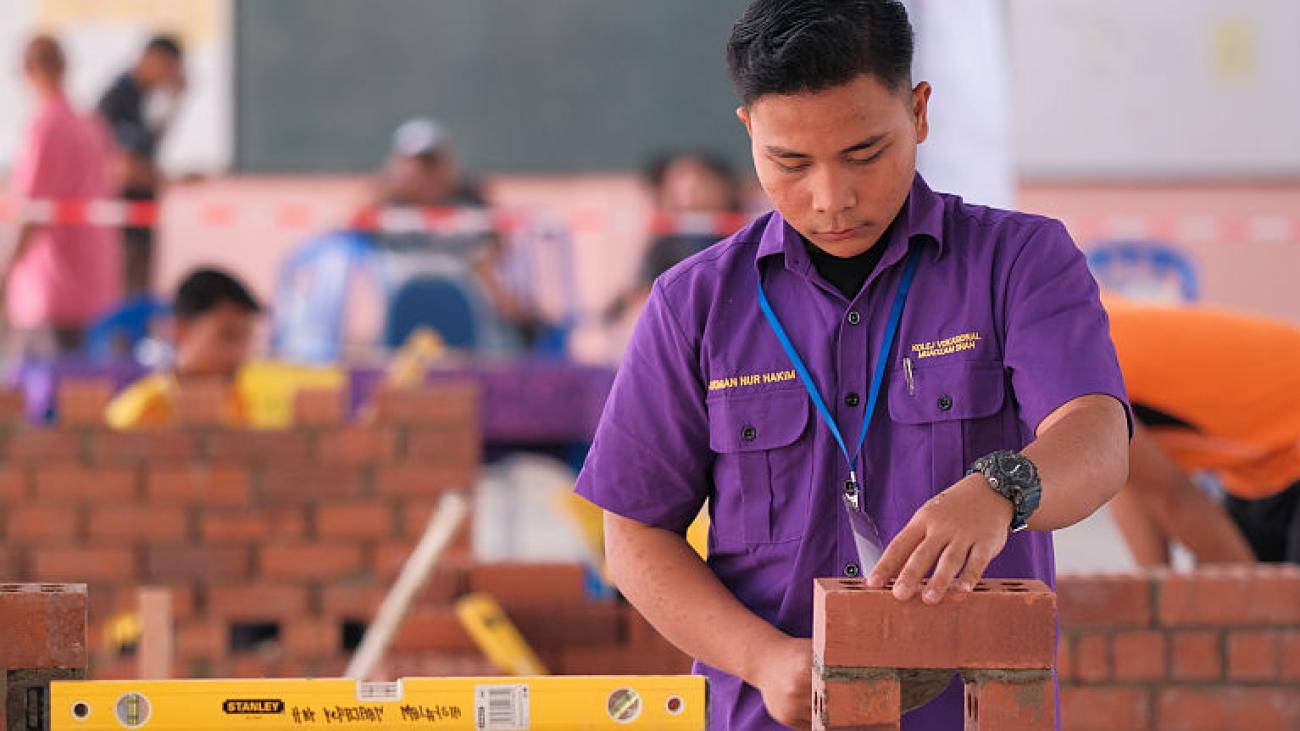Over 12,000 Malaysians thrive in enhanced TVET and skills systems

ILO, UK government and Malaysia collaboration spurs inclusive, future-ready and relevant skills development, empowering women, youth and vulnerable communities.
Read the original article here
Over 12,000 Malaysians, including women, youth and the bottom 40 per cent of the economy, have benefited from the Skills for Prosperity Programme in Malaysia, run by the International Labour Organization (ILO) and funded by the United Kingdom government from 2019 to 2023.
The Skills for Prosperity programme is also a flagship UK global education and skills programme working collaboratively with multiple partner countries, including a dedicated South-East Asia programme.
Having made headways into enhancing equity, quality and industry relevance of Malaysia’s technical and vocational education and training (TVET) and skills systems, the programme has directly benefited more than 1,600 people and indirectly assisted over 11,000 individuals, with more than half of them being women. These include students, workers, small- and medium-sized entrepreneurs, government officials, TVET institution staff and members of industry, academia, and other private sector organizations.
Speaking today at a culmination event of the programme, Panudda Boonpala, ILO Deputy Regional Director for Asia and the Pacific, cited some notable accomplishments of the programme in making TVET and skills systems more equitable, more future-ready and more relevant for the industry. This would result in a trickledown effect, touching the lives of Malaysians across the country.
“Through pilot initiatives in Sabah and Kedah, we've played a pivotal role in upskilling and reskilling workers, while also recognising skills acquired through informal channels,” said Ms Panudda, highlighting the programme’s work on increasing inclusive skills development.
“Graduates and workers in these states have become more resilient and employable,” she added.
Ms Panudda added that the programme has bolstered the quality of TVET, with a specific emphasis on promoting the integration of generic skills related to science, technology, engineering, and mathematics, or STEM into the TVET system. It has also contributed to the development of the digital talent development roadmap and National Skills Registry, which are critical to facilitate the digital transformation of Malaysia TVET system and support anticipation and matching of future skills needs.
“This equips learners with the capabilities and knowledge for skills utilization and continuous career progression in the changing world of work,” she said.
Additionally, the Skills for Prosperity programme in Malaysia has substantially enhanced industry engagement in TVET, she added. This includes the development of institutional arrangement and mechanisms, sector-specific approaches for skills development, and the facilitation of industry-led quality apprenticeship programmes.
“Such endeavours instil confidence in workers, ensuring that the skills they acquire remain relevant to the ever-evolving job markets, both present and future,” she said.
Ms Panudda added that these efforts will contribute significantly to Malaysia's social and economic development, particularly in alignment with the 12th Malaysia Plan.
Oliver Wee Hiang Chyn, President of Master Builders Association Malaysia (MBAM), said: “Our aim is not only to attract young talent into the industry but to also retain and upskill a skilled workforce through various TVET programmes that will drive growth and innovation and subsequently contribute to the country's economic development and workforce sustainability. Shaping the future of the construction industry in Malaysia is indeed no easy task but together we can make a difference, for the better.”
MBAM is one of the programme’s key partners.
HE Ailsa Terry, British High Commissioner to Malaysia, said: “The UK has been supporting Malaysia in its efforts to build a future-ready and inclusive workforce through TVET and skills. Through the UK’s Skills for Prosperity programme, and working with the Malaysian Government and the International Labour Organization, we managed to improve access to TVET and Skills for of women and vulnerable groups. This is a step forward in alleviating marginalised communities from the cycle of inaccessible unemployment and poverty.”
Karima El Korri, United Nations Resident Coordinator in Malaysia, Singapore and Brunei Darussalam, said the programme has left an indelible mark on the path towards achieving the United Nations Sustainable Development Goals.
“I hope that UN Country Team, including the ILO, will keep working with all national partners here today towards the inclusive and sustainable skills development and promotion of lifelong learning, to achieve SDGs in Malaysia,” said Ms El Korri.







